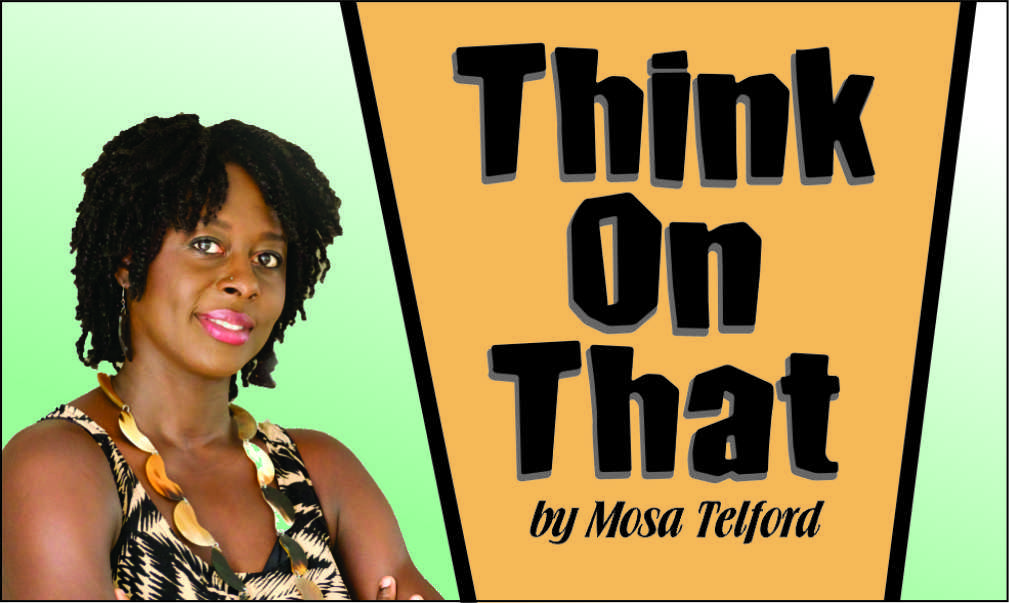In Buxton, where I grew up, it is the custom of the Anglican Church to sound a bell to indicate the death of a person. Every time you heard that bell, you wondered who had died, or, if you knew beforehand, you would often reflect on their life.

And then news that Marlon was shot to death by a Lance Corporal of the City Constabulary left me speechless. The bell sounded in my head again and the slow beat of the drum. It was terrifying because I began to wonder whether what I had seen the day before was a premonition of the dead man’s fate. In the picture, was he not only staring the monsters in the face, but staring death as well?
Another video surfaced of Marlon dying after he was shot. His mother, his aunt and his cousin witnessed the last moments of his life. I cannot imagine the trauma, especially for the mother who had carried him, birthed him and watched him grow.
The darkest days, when predominantly men of African descent were often lying dead in the streets because they were executed by police without trial, were suddenly here again. My mind raced back to an early morning in 2002 and being awakened by chanting and the bell again when Shaka Blair was murdered.
“What was Marlon’s crime?” I wondered. “Did he rape? Did he kill? Did he steal? Did he threaten the Lance Corporal who took his life? Did he have a weapon and was he threatening the life of others?”
In conversation, his relatives repeated what was reported in the news. They went to take him some supplies, he saw them and ran in their direction, and he was pursued by the Lance Corporal, who shot and killed him. They could have caught him because he had not gone very far, one of his relatives, who was present, reported. The fact that he was brutally beaten the day before and would have been weak was also noted. But I suppose trigger-happy men cannot think in those moments when their eyes are set on prey.
His mother said that she was told that months ago a woman reported that Marlon had been abusive to her. The woman later decided not to pursue the matter, but the city police upon seeing Marlon on Saturday decided to apprehend him. I have zero tolerance for abuse and I believe that anyone guilty should face the just penalty. Other reports said that he was apprehended because of simple larceny and assault. But was it justifiable what happened to Marlon, who was never tried and found guilty? Was he not mentally ill and a substance abuser?
Many young men and women are hooked on drugs in this country and are detached from reality or living an alternate existence. People develop addictions for various reasons. Some experiment and before they realise it they are addicted. Some are trying to drown their pain and use it as a coping method. Whatever the reasons, shooting and killing mentally ill people, who are not threatening anyone, cannot be justified. Could they not seek to get Marlon rehabilitated instead of shooting and killing him? The executioner, thereafter, said he was aiming for Marlon’s leg, yet the police said Marlon was shot in the back (the autopsy report given to his mother stated that he died of gunshot injuries to the chest).
There are reasons that laws are in place. There are reasons law enforcement officers are trained. They are supposed to know how to resolve situations without resorting to the use of lethal force, like shooting unthreatening people to death. I often wonder about the motives of some of the people who join the forces. I wonder if some of them were once little boys who played violent videos games and who may think that being legally in a possession of a gun gives them the right to shoot anything that does not move to their liking.
Images of bloodied men, dying on the streets, will always haunt this country. Images of men of African descent, who comprise the group, I reiterate, that has been predominantly executed by police, are the ghosts that haunt many. Will the visions of mothers bawling and fainting for their executed sons ever cease? It is too familiar. I do not have a son, but if I did, I am sure I would have feared for him, like those mothers and fathers who keep their sons in their prayers, meditations or surround them with positivity, hoping that they will not become another statistic.
The shooting death of Marlon Fredericks is unjustifiable. We cannot sit silently and watch the events unfold only to result in no justice. His life had value. Though he was addicted to drugs, he was also a vendor. Many of us do not pay attention to such crimes or try to justify the actions of the forces when they kill young men without trying them. But what happens when it reaches your door? What happens when it is a relative or a friend? We cannot wait until it happens to someone close to us or to us before we decide to do or say something about it. As long as trigger-happy officers, who are ready to shoot anything that moves, exist, all our sons are at risk. It matters not what their level of education is (Marlon was educated); it matters not whether they are addicted to drugs or not; it matters not whether they are innocent or guilty, they could be at the wrong place, at the wrong time or they could just say something that enrages an officer and just like that, their life could be snuffed out. The bell will ring again and the slow beat of the drum will continue, all to say, “A luta continua.”






